by: Joshua Ogure June 15th, 2015 comments:
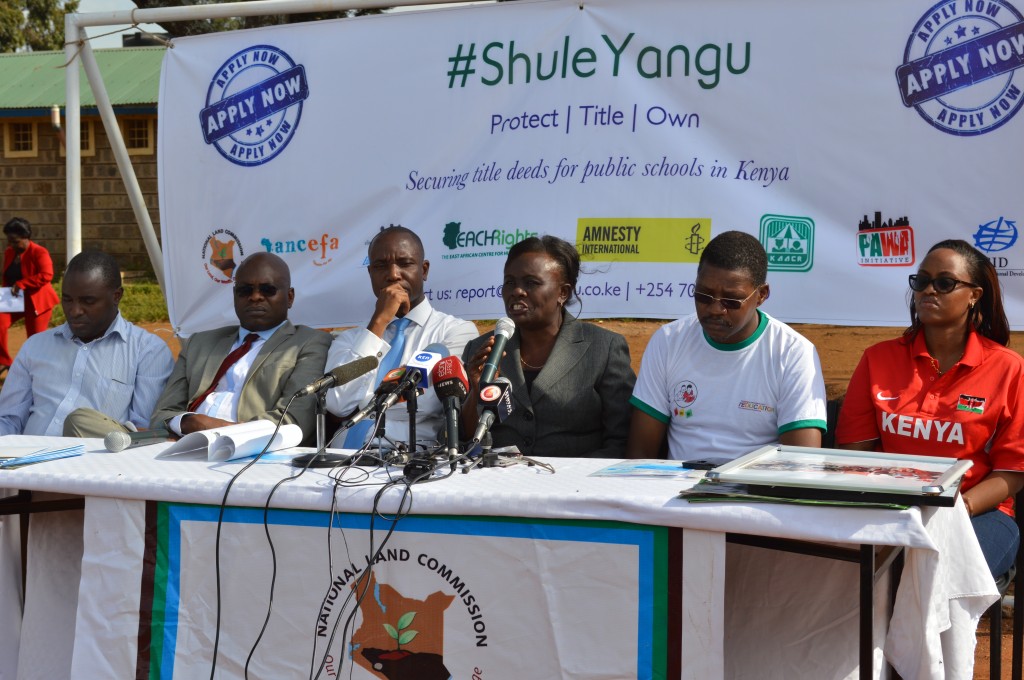
Five months after Lang’ata Road Primary School students, parents and friends brought the issue of school land grabbing to international and national spotlight, the National Land Commission and nine child rights organizations today launched national guidelines for schools to apply for title-deeds.Â
Also check out this new video by Kibera News Network about this issue!
However, informal schools within the settlements like Kibera Slum, which make up 96% of the schools there, will not benefit from this directive to acquire title deeds since they lie on government land until the land ownership issue is permanently sorted out.
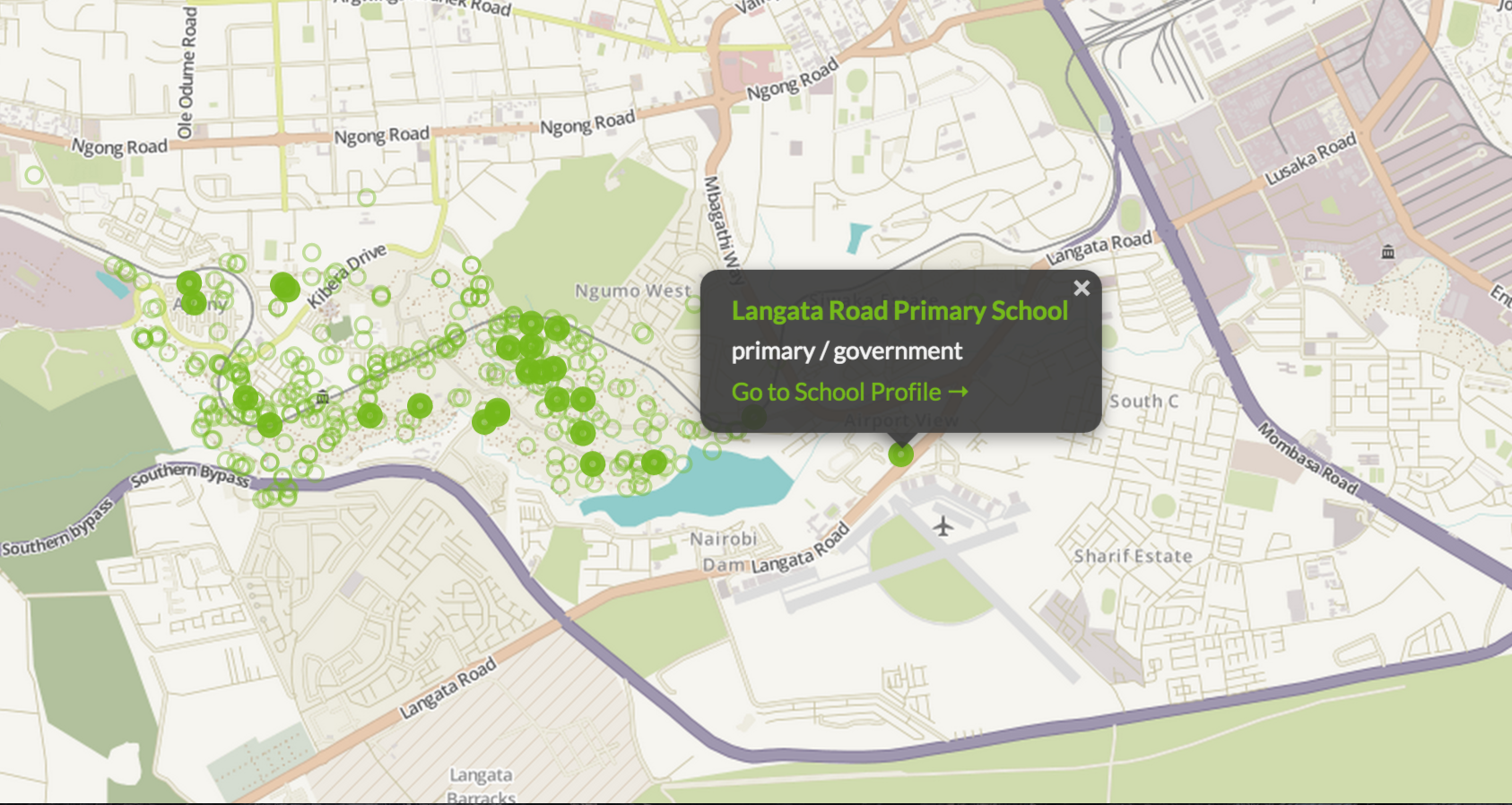
Speaking at the event, the National Lands Commission Vice-Chairperson Mrs. Abigael Bagaya noted,
“Since the Langata incident, the Government has taken action to secure schools across the country. The Commission has received 5000 applications from including Lang’ata Road Primary School. We have received complaints of land grabs from 350 schools. It is for this reason, we launch these national guidelines. We promise to issue all titles within 60 days of receipt.â€
Also speaking at the event, Elimu Yetu Coalition Coordinator Janet Muthoni said,
“The Right to Play and the Right to Education is provided in the key international conventions and the Constitution of Kenya. The Government must revoke the title deeds for the Lang’ata Road Primary School from the private developer. The Government needs to appoint or empower an alternative to the interdicted Registrar Sarah Mwenda. The vacuum caused by her absence is causing a delay in meeting the Presidential directive to the 5,000 schools awaiting tittle-deeds.â€
Also present were the public interest campaigners Boaz Waruku and Irungu Housghton arrested in the January 2015 incident, Irungu, SID Associate Director said,
“The courage of the children of Lang’ata Road has inspired a nation. Since January, there have been over thirty reclamations of schools and other public lands by the Government and active citizens. As we celebrate the African Day of the Child tomorrow on June 16 we honour their courage and call for all citizens and leaders to protect places of learning.â€
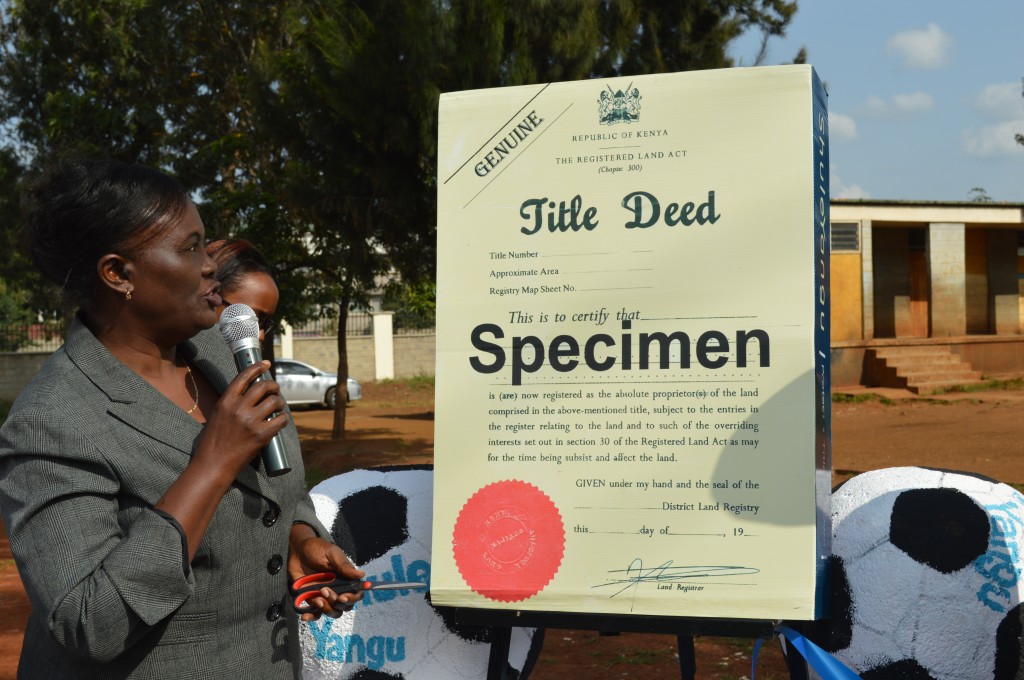
Guide to Securing title deeds for schools:
Step 1- The school heads submit an application for a tittle deed to the Secretary, County Land Management Board
Step 2- The County Land Management Board (CLMB) will process the application to ensure it meets all requirements.
Step 3- CLMB approves the application and submits it to National Land Commission (NLC) for issuance of the letter of allotment.
Step 4- Pay administration fee for processing the title deed.
Step 5- NLC prepares the school’s lease document and submits to the Chief Land Registrar.
Step 6- The Chief Land Registrar registers the lease and issues a tittle deed to the school.
How you can report a case of Land-grabbing?
Step 1: Document the name of the school, plot number, county, total schools acreage, acreage grabbed, persons/agencies who have grabbed land and what they are using it for currently.
Step 2: Report the matter to the nearest police station and obtain an Occurrence Book (OB) number.
Step 3: You can report the information and OB number to a number of agencies and copy us. See (www.shuleyangu.co.ke)
By Joshua Ogure, Kibera News Network.
by: Mildred Anekeya April 29th, 2013 comments:
The 24th UN HABITAT Governing Council (GC24) was held at the UN Complex Nairobi under the theme ‘sustainable urban development’, on the roles of cities in creating improved economic opportunities for all, with special reference to youth and women. The governing council serve as the intergovermental decision making body for UN-Habitat. The meeting was officially opened by newly elected Uhuru Kenyatta who emphasized youth and employment. He said youth issues are sidelined, and few are willing to talk about them, especially the need for youth to access information and employment.
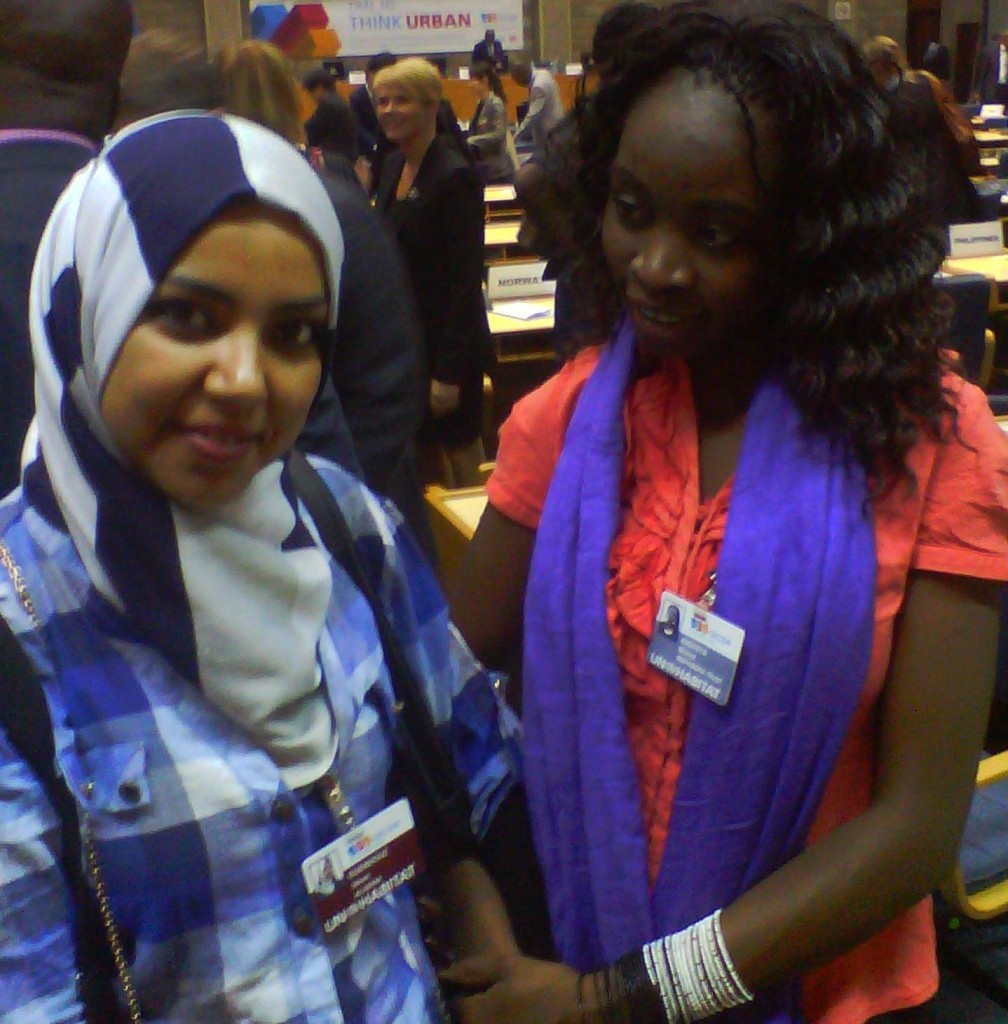
Map Kibera Trust was privileged to participate, due to our work under the UN Habitat Youth Fund. We especially contributed to discussions in on the issues of ‘Safer Cities’ and environmental issues. Safer Cities encourages design at the level of local authority decision and policy making, focused on the most vulnerable, women and girls in the community. I presented how Map Kibera approaches the issue of security, one of our themes that has most impressed people in the community. I discussed the map and how it’s used for awareness with young ladies. The response was positive!
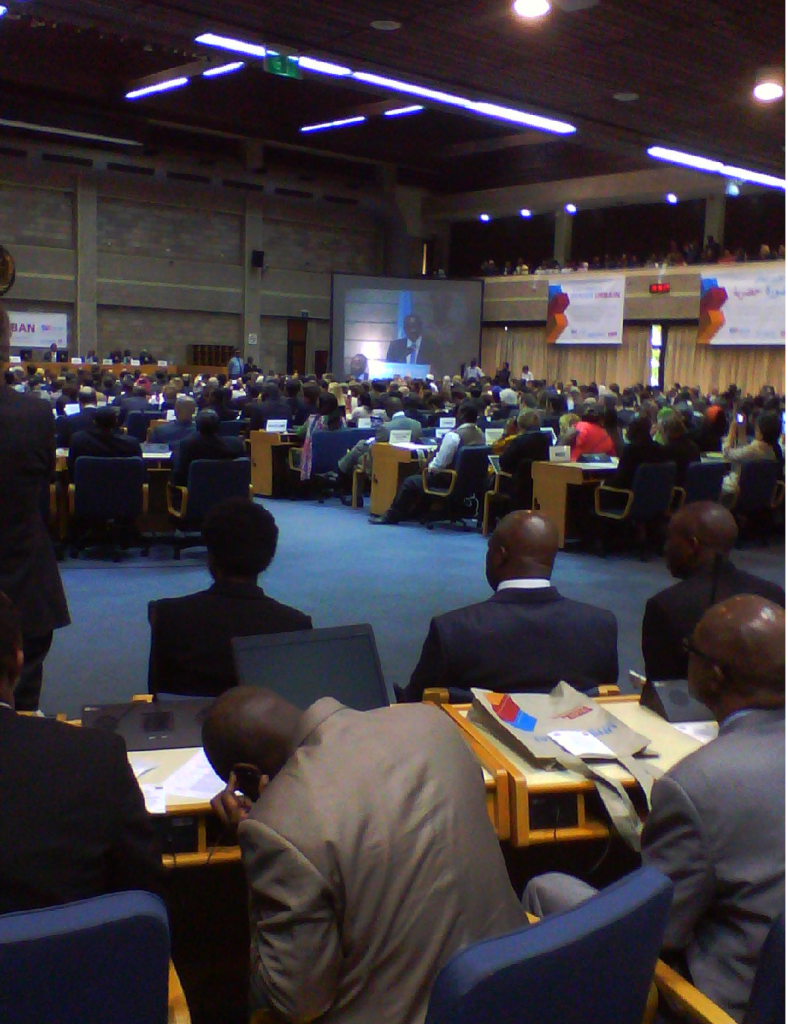
The rest of the youth discussion was engaging. A platform for discussion was held where young people went to enlighten each other on ideas to create jobs. A youth from Kibera and a member of Youth Advisory Board (YAB) presented, really helped us understand the issue by defining six points towards understanding job creation: E-ducation Everyone should be educated. E-xchange Exchange ideas towards job creation. E-mployment creation From the exchange of ideas, it will give you ideas on how to create jobs. E-quity After creating jobs you provide equal opportunity to everyone. E-mployment Everyone gets employment in the community. E-nterpreneuaship Everyone should market him/herself, especially using we should use ICT.
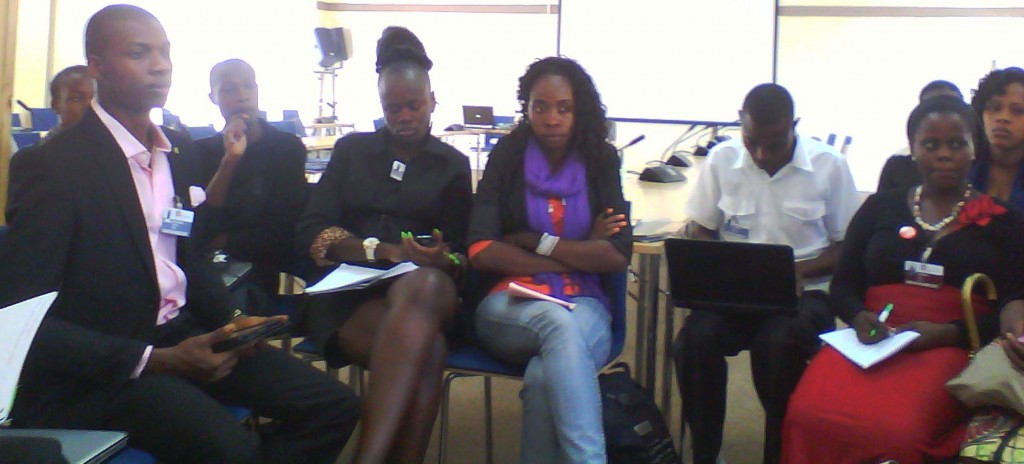
The Youth Caucus on the last day focused on youth inclusion. Youth shared real issues that affect them, issues that are sidelined, that no one is willing to talk about. When youth are enlightened they can focus on what they need and move forward. In contrast, a delegate from Uganda came out differently and said youth are there own enemies, they don’t think beyond financial issues. She encouraged youth to think about the long term, and address negative attitudes towards volunteering.
by: Sande Wycliffe December 3rd, 2012 Comments Off on Voice of Kibera takes awareness of its platform to Mashinani “Grassroots”
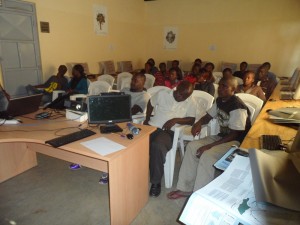
An Attentive Audience at the Meet-up
Introduction:
“I want to play a pivotal role in updating and sharing community generated information with the community and the world at large through citizen journalism. I say so because I witnessed an incident a few months ago during the oil shortage problem, where a CNN journalist came to Kibera slums and paid a woman stage manage some kind or a demonstration saying the price of Paraffin had gone up as he recorded her. I would like to know more about www.voiceofkibera.org so that I can challenge the perceptions and misrepresentations that Kibera goes through.†This was what Ann one of the participants had to say during the introductions session at the meet-up.
Before then, Map Kibera Trusts’ Voice of Kibera had organized a presentation in Soweto East village to engage the youth group leaders more on how they can get engaged with the platform. Having invited 30 representatives, 22 were able to turn up for the event that started at about 2:15pm on Saturday the 1st of December.Â
Preparations for the day:
Adequate arrangements by the V.O.K team were made to ensure that the days program would run smoothly hence achieving its purpose. Below was the program flow.
- Introduction of the entire Map Kibera Trust and Voice of Kibera.
- The relationship between Map Kibera Trust programs.
- The Voice of Kibera platform and how it works, what the participants think can be improved.
- Question and Answer time to enable a brain storming session for better understanding.
- Distribution of Maps on 3 themes; Education, Health and security to the line organizations that attended.
- Refreshment and Networking
- Conclusion
The voice of Kibera Presentation:
This was a step by step presentation done with Fredrick, one of the Map Kibera trust members. I could feel the mood in the hall, one with silence meaning the participants were keenly taking in what was being said. Some of the details that were shared are; How to submit a report, The ways with which you can send the report to the website, the details and importance of categories, editing, proof reading and approving or reports among others.
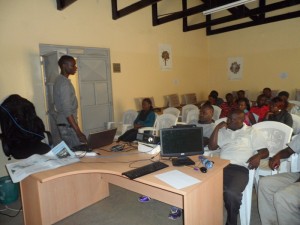
Fredrick Doing the Presentation in Soweto East
After the session Sande took over to reinforce what had been discussed even as he led the question and answer time.
Some of the questions:
- How do you ensure authenticity of the reports you collect?
- Now that we have new boundaries, what is your organization doing to that effect?
- Do you have anywhere you advertise jobs for the youths in the slums?
 Our Response to the Questions:
That when you have a report and you are not sure about its’ contends, you can get call back the person who send it to get more clarification, if the news has been covered by a 2nd or 3rd parties you can use that as well as using your available networks to get confirmation or more information on the same. Map Kibera is currently remapping the new boundaries by IEBC including information on the location of polling stations so that this information can be available to the locals before the elections in March 2013. We are developing a plartform under the name organizational directory that will see advertisement of opportunities a reality in the sense that those who consume contend do it for free apart from profiling organizations in Kibera on the Platform.
The meet-up that took close to 3 hours came to an end with the p







